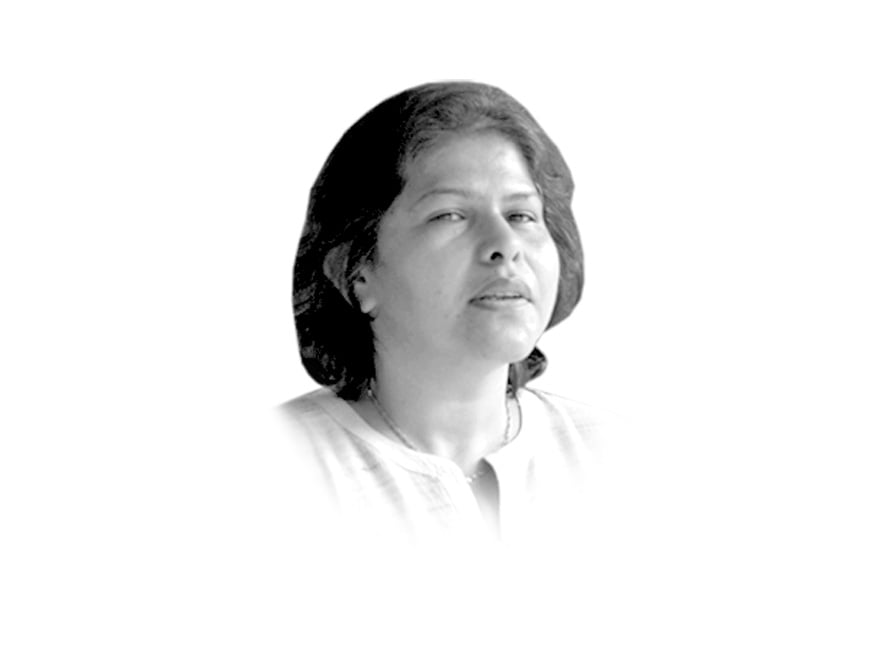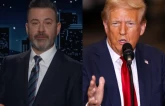
But do such events actually resurrect the pluralism of a society or are these mirages of pluralism that we tend to create to fool ourselves that things can be changed without bringing about structural changes? I remember attending the Cholistan peace festival organised by the Khwaja Farid Foundation a few years ago. Held in the middle of the desert, it involved horse, camel and motorcycle races. The Foundation had even invited the then US Consul General, Brian D Hunt, who was famous for rebuilding shrines in Pakistan as a way of reinvigorating the inherent secularism in our society, especially South Punjab, which has become popular for the jihad industry. A RAND Corporation report of 2007 had indicated Sufi shrines and culture as part of numerous alternative institutions in the Muslim world that the US must engage with to bring about peace. The only problem, however, is that most diplomats or those engaged in branding Sufism as an alternative institution are not aware that the ‘alternative’ has died down due to years of engagement with authority and authoritarianism.
The Cholistan festival must have thrilled the diplomats and representatives of some UN agencies that were there without understanding that the festivity was no reflection on pluralism or the absence of it. It is not very difficult to get people together in a festivity-starved area like the Cholistan desert. Folks will participate without altering their thinking on issues of faith and authority.
Indubitably, no one should undermine the benefits which will accrue due to the Sindh festival. Hopefully, it will result in completion of the Larkana-Mohenjo-Daro highway that couldn’t be completed in the last five years despite no shortage of funds. It will certainly bring temporary colour and excitement in the lives of ordinary people. But festivals are part of the Sindhi culture and its reality as much as the fact that militancy and radicalism are growing rapidly in the province. The rise in radicalism is not because festivals don’t happen but primarily due to numerous other reasons ranging from the nature of patronage politics to the absence of an alternative sociopolitical narrative.
All the young PPP leadership needs to do is step out to find how militant madrassas have emerged throughout the length and breadth of the province. These are not places where militant training is conducted but extremist ideas against other religions and sects are propagated. For those who argue in favour of madrassas being part of the culture, religious seminaries were historically part of the environment and not disconnected from it as hundreds of these Salafi,Deobandi and Shia madrassas are today. Questions must be asked regarding the role played by the JUI-F leadership in Sindh in providing an ideological umbrella. Will the festival also reach the kacha (jungle) area in upper Sindh where militants also train in the guise of dacoits?
The presence of hundreds and thousands of people at Sufi shrines and festivals doesn’t mean anything just as the presence of thousands of people at the Cholistan festival didn’t indicate any change. While looking at what must be done to stem the tide of radicalism, we should also review our imagination of radicalism. Both the gora and brown sahibs are confused about defining radicalism which is normally measured in relation with the picture of the Afghan Taliban. However, radicalism in Punjab and Sindh is far more lethal because it is much better hidden. Here, you will also come across clerics that are less than pious and militants who engage in material corruption. Furthermore, they even hide better behind the guise of tradition and culture and are linked with the local big landowner or feudal lord. In fact, the man in the street in Sindh talks about how the pir, the wadera, the dacoit and the mullah hurt the ordinary people but not necessarily one another.
The big landowner in Sindh is willing to play ball with those representing a more militant world view and ideology as long as he can exercise power often exhibited through turning government schools in his areas into stables or storages (some were vacated during the 2013 elections on request by the ECP since schools were to be used as polling booths). At best, ethnicity is used to maximise control, which makes ethnicity part of the feudal-militancy ideological loop.
Over years, the Sindhi middle class has begun to look away from Sufi traditions due to its association with authoritarianism towards more radical versions of faith as an alternative. This does not mean people will resort to violence but will support ideas which eventually feed violence. This is the Punjab-Sindh model of extremism that is different from the Pashtun areas. Moreover, radicalism is not limited to one ethnicity but spread out amongst all groups and especially in large urban centres. Thus sectarian violence is also on the rise.
Sadly, religious and political radicalism is like toothpaste — once pushed out you can’t put it in unless a new tube/bottle is invented.
Published in The Express Tribune, December 19th, 2013.
Like Opinion & Editorial on Facebook, follow @ETOpEd on Twitter to receive all updates on all our daily pieces.
COMMENTS (16)
Comments are moderated and generally will be posted if they are on-topic and not abusive.
For more information, please see our Comments FAQ
1731054157-0/amish-(1)1731054157-0-405x300.webp)

1729668165-0/Jaden-Smith-(1)1729668165-0-165x106.webp)

1731051730-0/BeFunky-collage-(33)1731051730-0-165x106.webp)









"The Foundation had even invited the then US Consul General, Brian D Hunt, who was famous for rebuilding shrines in Pakistan as a way of reinvigorating the inherent secularism in our society, especially South Punjab, which has become popular for the jihad industry."
I am confused. Is the author implying that "secularism is inherent in Pakistani society"? If so, why the two nation theory and the slogan "Muslims can't live with Hindus" and the demand for a separate homeland for Muslims that created Pakistan?
Islam is one reliegen its not a sindhi or south punjab or grave worshipers or libral or secular it has a some permanent thing which are called its foundation and with out that one cant call it self muslim and they are become a strong believer of one god and faith on what ever comes good or bad its from him and in the time of need strugle what ever possible or is available and i think this half muslim and half secular not gonna work too long...
Things are not so simple rightly pointed out, but the questions are much more basic which need to be asked and argued, do we have middle class to begin with any more, to me they have withered away, as now uper lower class is judged and labelled as middle class. Once you take out this chunk of society, the ethics morality and traditions and resulting culture vanishes as there are no levels to guard it with thier effort and sweat and blood.
you have no more places of interaction, every one glued to 80 chnanels with nothing to see, half baked and half cooked peoples are running the show every where, things are much scary and complex we need concerted efforts for quite long to even see minimla of changes
Radicalism in a society can only be wiped out through the promotion of science, reason and critical thinking. No matter how many Sufi pirs you bring forward and 'moderate' mullahs you prop up, they all stand for pretty much the same thing i.e. suspension of critical thinking. When will our leaders and society realize that a country that does not vigorously promote Science and secular thinking has no future.
I disagree with the author'opinion that Sindhi middle class is turning to religious extremism. sindhis subscribe to secular ideals of Z.A bhutto and G.m syed. religious parties doesn't win a single seat from (so called) 'interior' sindh. secularism and nationalism are prime socio political ideals of people of sindh. Saudi funded religious institutions have failed to create sectarian and extremist impact in sindh so far. its good that the world has started to support secular and sufi ideals of sindh. sindhis hate mullahs and their otaq katchaheris are full of jokes about mullahs and,their bigoted version of Islam. millions of Sindhi people come together to celebrate culture of sindh. they sing dance and enjoy! these gatherings show that sindhis do not subscribe to ideals of mullahs. Sindhi culture and Sufism are not pp's card. bilawal is only trying to benefit from popularity of culture and Sufism in... sindh
Every one is trying to get refuge in sufisim and cultural festivals while we need logic and rational steps to face extremism. This what I've written it in my article a few days ago. Almost the same idea what this article explains. However I knew not about the USA funding for secularism but recently US Conuslate karachi has arrainge a Qawali program in the same connection.
Madam what u saying that worshiping graves stone gonna bring peace in pakistan hahahha no but education, equal rights for all will indeed....
I think the purpose od sind festival is for bilawal to connect with people, its vey much a political step by ppp, not a bad idea at all.
@Anas Abbas:
Dissociating from funerals in South Punjab and Sindh is more important, but it is a good move nonetheless.
@Shahid, well-said.
Counter narrative i.e., new toothpaste that is the billion people question. When religious fundamentalism becomes so powerful where society starts idolizing mass murderers (Hakeem Ulla Mehsud & Moalla Quader) how does one offer counter narratives at the risk of losing life and property? Madame, its not that easy but I tend to agree with your structural longer term solution, whereas immediate needs require state and society to promote their heritage while at the same time engage extremist elements both through dialogue and offensive means. Failure is not an option for Pakistan.
Over years, the Sindhi middle class has begun to look away from Sufi traditions due to its association with authoritarianism towards more radical versions of faith as an alternative. This does not mean people will resort to violence but will support ideas which eventually feed violence. This is the Punjab-Sindh model of extremism that is different from the Pashtun areas. Moreover, radicalism is not limited to one ethnicity but spread out amongst all groups and especially in large urban centres. Thus sectarian violence is also on the rise.
What a shame. To oppose authoritiarianism instead of adopting leftwing ideology, socialism or social-democrary, which call for equality and wellbeing for all, these people choose the sort of sectarian facism that his destoyed FATA and Afghanistan. Insanity. It just shows that there was already something wrong with their culture and their worldview which made them make scapegoats of minority sects promoted and general lack of empathy towards their fellow man.
True peace can come through soft culture.We Pakistani are the most inspired people by Indian culture and still there is no PEACE,what is lacking? Moreover, Bilawal Zardari's initiative for SINDHI CULTURAL FESTIVIAL is going to bow new type of seed of ETHNIC culture.You may say the new trend of politics by Bhutto family in Pakisan.
@ Shahid
The self styled liberal secular elite were also happy partners in radicalizing society, when Arabs came calling with their petro-dollars long before the Soviet invasion of Afghanistan.
Pakistan has habitually imported narratives instead of cultivating and enriching its own local narratives.
One really wonders about the real extent of foreign funding in trying to create artificial narratives for our history, culture, religion and civilization in order to serve their own interests. The worst part of it is their infiltration into Pakistani society through untold number of NGO's and other civil organizations. Unfortunately our self styled liberal-secular elite seem to be happy partners in these insidious foreign funded, inspired and supported activities. So sad ...